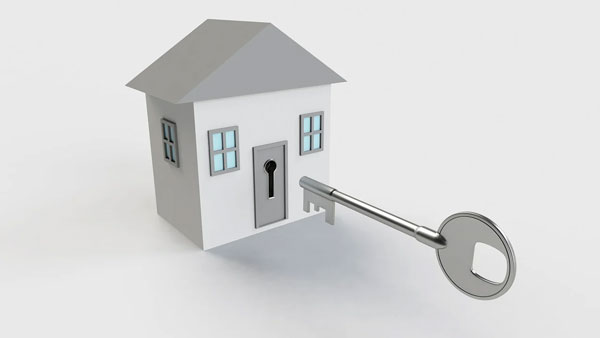Debunking Estate Planning Myths: What You Thought You Knew
Table of Contents
Introduction
Debunking Estate Planning Myths: Ah, myths. They’re the stuff of legends, tales told around campfires, and… estate planning? That’s right. Just as there are myths about haunted houses and Bigfoot, there are misconceptions about estate planning that many believe to be true. Today, we’re setting the record straight and debunking some of the most common estate planning myths.
The Origin of Estate Planning Myths
Throughout history, myths have been born from misunderstandings, half-truths, and sometimes, pure imagination. Estate planning myths are no different. They often arise from misinformed individuals or those who’ve had unique experiences and then generalize them. The danger? These myths can lead to costly mistakes, missed opportunities, and a lot of unnecessary stress.
Myth #1: Estate Planning is Only for the Wealthy
Many people believe that estate planning is a luxury reserved for the rich and famous. But here’s the truth: everyone has an estate. Whether it’s a modest apartment, a collection of vintage records, or a sprawling mansion, your assets are yours, and they deserve to be protected. Estate planning ensures that your hard-earned assets go to the people or organizations you choose. It’s not about how much you have; it’s about ensuring what you have is directed as per your wishes.
Myth #2: I’m Too Young for Estate Planning
“I’m in my 30s. Why would I need an estate plan?” This is a sentiment echoed by many young adults. The reality? Life is unpredictable. Accidents, illnesses, and unforeseen events don’t discriminate by age. Starting your estate planning early, no matter how minimal, ensures that your wishes are honored, no matter what the future holds. Plus, as life evolves—marriages, children, new assets—your plan can adapt with you.
Myth #3: Having a Will is Enough
While having a will is a commendable first step, it’s just that—a first step. A comprehensive estate plan includes considerations like powers of attorney, healthcare directives, and trusts. For instance, a will won’t help if you become incapacitated and can’t make medical decisions for yourself. That’s where a healthcare directive comes in. Think of a will as the tip of the estate planning iceberg; there’s so much more beneath the surface.
The Power of Proper Estate Planning
By now, you’ve probably realized that proper estate planning is about more than just distributing assets. It’s about peace of mind. It’s about knowing that, come what may, your wishes will be respected and your loved ones taken care of. And in a world filled with uncertainties, that assurance is priceless.
The Digital Age and Estate Planning
In 2023, the digital revolution is in full swing. From cryptocurrencies to digital art, our assets are becoming increasingly virtual. And just as you’d protect your physical assets, your digital ones deserve the same care. As for the power of blogging? Well, if you’re reading this, you already know its impact. And with AI tools making it easier than ever to share knowledge, who knows? Maybe your next venture could be a blog about the myths of… well, anything!
Conclusion
Estate planning is a journey, not a destination. As life changes, so should your plan. By debunking these myths, we hope you feel empowered to take control of your future. Remember, it’s not about the size of your estate but the thought and care you put into planning it.
Frequently Asked Questions
Are there other common myths about estate planning?
Absolutely! Some believe that estate planning is too expensive or too time-consuming. The truth is, with the right guidance, it’s more accessible than many think.
How do I find a trustworthy estate planning attorney?
Research is key. Look for reviews, ask for recommendations, and don’t be afraid to interview potential attorneys to ensure they’re the right fit.
Can I change my estate plan once it’s set?
Yes, and you should! As life changes, your estate plan should be reviewed and adjusted accordingly.
How often should I review my estate plan?
It’s recommended to review your plan every 3-5 years or after significant life events like marriage, birth of a child, or purchasing a home.
Are online wills and estate planning tools reliable?
While online tools can be a good starting point, it’s always best to consult with a professional to ensure your plan is comprehensive and legally sound.
What’s the biggest mistake people make in estate planning?
Many assume it’s only about wealth distribution. In reality, it’s about ensuring your wishes, from healthcare decisions to asset allocation, are honored.
Is estate planning only for the elderly?
Not at all! It’s wise to start early, ensuring that in unforeseen circumstances, your wishes are clear.
Does estate planning only benefit the wealthy?
No, everyone can benefit. It’s about protecting your assets, no matter their size, and ensuring they’re distributed as you wish.
Can I do estate planning without an attorney?
While possible, it’s advisable to consult with an expert to ensure all legal nuances are correctly addressed.
How does estate planning differ from writing a will?
A will is a component of estate planning, which is a broader strategy encompassing all aspects of your assets and how they’ll be managed or distributed.








One Comment
Comments are closed.